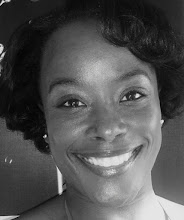"Man's mind, once stretched by a new idea, never regains its original dimensions."
- Oliver Wendell Holmes Sr.
As I prepared for this post, I reflected on whether the course I had alluded to in the previous post, had in fact been Ethics in Media. I revisited the Comms site of my alma mater, and I am now wont to think the course in question was Media and Society. That's what happens when you have the same professor for more than one course - and several years have passed since graduation. :-)
What I won't forget, though, is the impact that that morning's class had on me. The new information to which we had become privy made me stop and think. Suddenly, and almost involuntarily, I began to reflect on the shape and texture of the world around us. How long did it take for us to get from there to here? And, what had we given up in the process of being stretched in mind; in expectation?
The clip Prof showed us that morning is what has been popularly known as the
Zapruder Film. It depicts the assassination of President John F. Kennedy - in the moment! The Zapruder Film is the most famous - and, I think, the most graphic - film of the shooting. Apparently, Abraham Zapruder, a member of the public, had managed to get a sweet spot to test out his newly acquired home-movie camera. He wished to record the President's motorcade as it made its way through Dealey Plaza in Dallas, Texas, on that fateful day, November 22, 1969. He had it rolling as the motorcade came by and, well, he managed to get
that moment caught on film. Of course, he realized afterward the value of what he had in his possession. I do not recall the intricacies of how it came to move from his hands to media - after a bit of negotiating - but, do feel free to look it up.
Here's a good starting point.
After sharing the story and the clip, Prof facilitated a discussion that raised comments on what was appropriate for television (in the USA) at that time; how much of a shock was it to people's sensibilities; looking at where we are these days with scenes of a graphic nature on television and in movies; how did we get from there to here? One student chimed in: "
That happened." That's all he said, "
That happened."
I think it took a few seconds for that profound statement to sink in before we each did a quick reflection - well, I did - trying to think of a time before that present when we were not inundated with violence on TV and in movies. And, what was more, when we were put off by it.
I did a quick search... Yes, it was quick. After all, I am no longer obligated to turn in papers for this course! :-) This should be enough to get you going, should you wish to do some more reading about whether there is a correlation between that 1969 broadcast assassination, and what we have progressively come to tolerate - as entertainment, to boot! So, yes, I did a quick search to get an idea of what the mind set was re violence on American television pre-November 1969 and post-November 1969. I found a few posts of note:
- The American TV series The Wild, Wild West, aired from September 17, 1965 to April 4, 1969. It was popular and earned high ratings, but was cancelled as a concession to Congress over television violence.
- The Surgeon General's Scientific Advisory Committee on Television and Social Behavior was announced on June 3, 1969. This came as a result of "15 years of 'consistently disturbing' findings about the violent content of children's programs." Makes you wonder what was the nature of the "violent content of children's programs" at the time (and 15 years prior to that) that gave rise to
"consistently disturbing" findings.
- There's a site that lists, in the compiler's opinion, the 30 most violent movies (published 2012). I'm still not sure how 300 and Kill Bill Vol. 1&2 did not make the list. But, as I said, opinion. Of the list, one of the closest to 1969 was "Salo", released in Italy, January 1976 - noting: "an almost universal banning greeted Salo in the beginning." It was released in the UK in 2000 and in Australia in 2012. The other closest to 1969 was "Shogun's Sadism", released in Japan in 1976.
Other factors, unexplored here, and, likely, in class that day, have had a measure of impact on how violence on American TV and in film has made progressively bolder moves over the years. It is my opinion, however, that the sensibilities of many became less and less jarred after - and because of - that pivotal moment.
Do we even give a second thought now to movies like
300?
300 - Rise of an Empire? (Can you tell?)
Kill Bill? Speaking of
Kill Bill. A then-friend and I went to see
Kill Bill Vol. 1 in Rochester, NY, shortly after it came out. I could not sit through it. It was simply too much. Sometime after that, I saw
300. Well, sometime after
that, I had the pleasure of watching
Kill Bill - Vols 1 and 2 - sans flinching.
The mind had indeed been stretched.
Claudia
www.cyopro.com
www.twitter.com/cyopro



